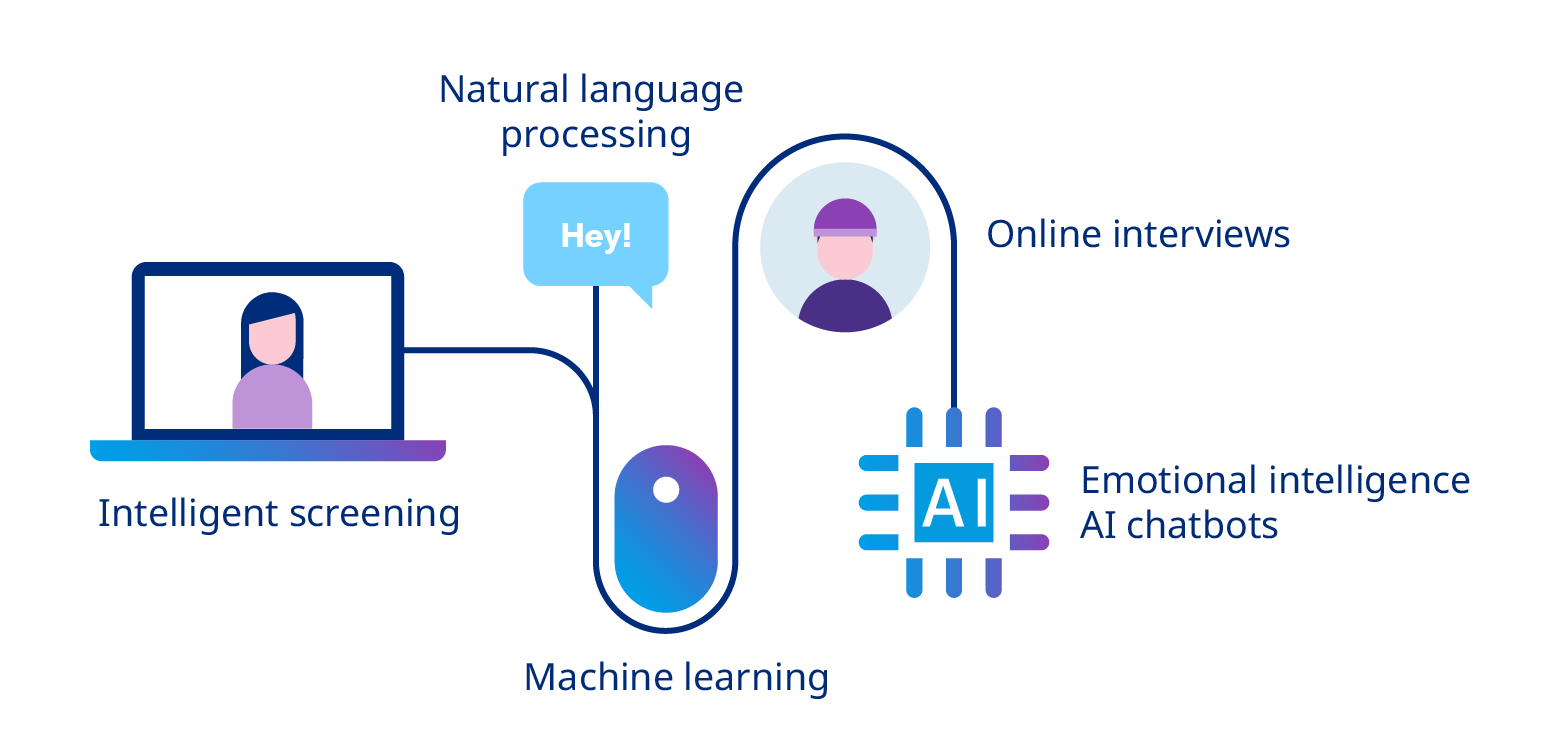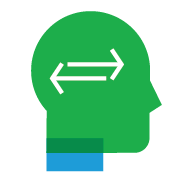
1. Intelligent screening
AI-based knowledge assessments intelligently automate the screening process in the initial stages of recruitment. They can evaluate applicants’ experience, skills, and language ability to shortlist them for specific job positions. The process can be improved by feeding historical data of experienced employees and their skills to understand what skills and competencies are necessary for new job roles.
2. Online interviews
AI helps improve the efficiency of online interviews. It detects candidates’ speech, word choices, body language, and facial expressions to understand their suitability for specific job roles.
3. Natural language processing and machine learning
AI-based knowledge assessments are powered by NLP and machine learning algorithms that interpret huge data sets. Analyzing this data from past hiring drives helps recruiters predict people’s behavior and make data-driven decisions.
NLP additionally allows the processing of candidates’ speech and text to understand their intent and gauge confidence while answering interview or assessment questions.
4. AI chatbots
Many knowledge assessments employ AI chatbots for candidates in the test environment. This chatbot is equipped to understand candidate behavior over time, resolve queries in real time, and update candidates about important details. Overall, improving candidates’ engagement and test-taking experience.









 Behavioral Competencies
Behavioral Competencies Cognitive Competencies
Cognitive Competencies Coding Competencies
Coding Competencies Domain Competencies
Domain Competencies




























Would you like to comment?